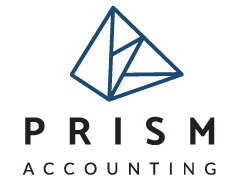Tax planning plays a crucial role in managing the financial health of medical practices. As the end of the financial year approaches, medical practice owners can optimise their tax positions, minimise tax liabilities, and maximise their after-tax income by implementing the essential EOFY tax planning strategies included below.
1. Accelerate deductible expenses
One of the tax strategies to consider for medical practices is bringing forward tax deductions by paying for certain business-related expenses before the end of the financial year. Examples of deductible expenses for medical practices include purchases of medical supplies, consumables and office supplies, and equipment repair and maintenance costs. By bringing forward these expenses, medical practitioners can claim the deductions in the current financial year, thereby reducing their taxable income for the current year.
2. Pay employee superannuation contributions
Consider paying accrued employee superannuation entitlements by 30 June.
While most business expenses are deductible when they are incurred, superannuation contributions are deductible in the income year in which they are paid. Super guarantee accrued during the June quarter is not required to be paid until 28 July. However, you may choose to pay the accrued amounts of super contribution before 30 June to claim tax deduction in the same financial year.
Keep in mind that super contributions are considered paid when they are received by the super fund. You may need to allow extra processing time if you are processing super payments via commercial clearing houses. However, if you use the ATO’s Small Business Superannuation Clearing House (SBSCH), payments may be considered ‘paid’ on the date they’re received.
3. Prepay business expenses
Prepaying certain expenses can be an effective way to reduce taxable income in the current financial year. Medical practices can consider prepaying expenses such as rent, leases, insurance premiums, subscription fees or interest on business loans for the upcoming year.
Expenses are immediately deductible if they are required to be incurred by law, or by an order of a court, or if the amount of expenditure is less than $1,000.
Prepaid expenses over $1,000 can also be immediately deductible to qualifying small and medium businesses if:
– the eligible service period for the expenditure is 12 months or less, and
– the period ends by the end of the following income year.
However, it is important to consider any limitations or restrictions imposed by tax laws, as not all prepaid expenses may be eligible for immediate deduction.
4. Write off bad debts
While reviewing outstanding debts is crucial for medical practices all year round, it is especially important close to the end of the financial year. If your medical practice is required to report income on accrual basis, writing off bad debts that are unlikely to be recovered can result in a tax deduction for the practice.
To be eligible for a write off, the debt must be genuinely “bad” and not merely doubtful. It is important to ensure that the necessary documentation and evidence that the amount is no longer recoverable. In addition, there are certain conditions that must be satisfied by companies and trusts before tax deductions can be claimed for bad debts.
If your business is reporting income on a cash basis (e.g., in a case of a sole practitioner), you cannot claim deductions for bad debts written off as you did not include them in your income in the first place.
5. Utilise depreciation incentives and instant asset write-offs
Medical practices often invest in expensive equipment and technology, such as medical instruments, diagnostic equipment, and computer systems. As the end of financial year is approaching, consider taking advantage of depreciation incentives, such as Temporary Full Expensing or Instant Asset Write-Off.
With the number of overlapping depreciation incentives introduced in the recent years, each with their own set of rules, eligibility requirements, timeframes and thresholds, applying these measures can be far from straightforward. It is important to ensure you are using the up-to-date information to guide you in making decisions regarding investment in business equipment for your medical practice.
For example, Temporary Full Expensing measure, which was introduced during Covid-19 pandemic to assist businesses with cash flows, allows eligible businesses to claim an immediate deduction for the business use portion of the cost of eligible depreciating assets, regardless of cost. For taxpayers who do not wish to claim full expensing on all eligible assets, the measure offers the ability to opt out of it on an asset-by-asset basis. The Temporary Full Expensing is set to end on 30 June 2023.
From 1 July 2023, depreciation deductions will revert back to the standard depreciation rules. Eligible small businesses will be able to claim immediate deduction for eligible assets below the instant asset write-off threshold (which is set to be $20,000 for 2024 financial year) if they elect to use the simplified SBE depreciation rules. Unlike the Temporary Full Expensing measure, the Instant Asset Write Off is only available for small businesses. It is less generous and does not offer the flexibility of the asset-by-asset opt out. Small business taxpayers electing to use the simplified depreciation rules must deduct costs of all eligible assets that cost less that the Instant Asset Write Off threshold and allocate the assets exceeding the threshold to the Small Business Pool.
It is important to remember that larger tax deductions created by temporary expensing or Instant Asset Write-Off may have adverse tax consequences to certain taxpayers and their appropriateness should be considered on a case-by-case basis.
6. Review super contribution tax strategies for the practice owners
Maximising concessional (pre-tax) superannuation contributions is a very effective tax strategy for high income earning individuals.
Concessional contributions include compulsory super guarantee payments, reportable employer super contributions and personal super contributions. These contributions are taxed inside the superannuation fund at a concessional rate of 15%. Individuals earning adjusted taxable income of $250,000 or more are subject to an additional 15% tax (known as Division 293 Tax) applying to concessional contributions made in the year, bringing the total tax rate on concessional contributions to 30%. However, it is still lower than the top marginal tax rate of 47%.
Practice owners should consider maximising their concessional contributions for themselves and their family members working in the practice to reduce their taxable income and build their retirement savings. However, it is crucial to check your total super balance, available concessional contribution limits, and any employer contributions expected to be paid by the year end before making additional contributions. You should also consider your personal circumstances to determine if this strategy is right for you.
7. Take advantage of other temporary tax incentives
In addition to regular tax strategies, medical practice owners should also be aware of temporary tax incentives and provisions that can provide significant benefits. These incentives, often introduced by governments to stimulate economic growth or support specific industries, can be advantageous for medical practices.
Examples of such incentives available in 2023 Financial Year include:
– Temporary Full Expensing of Depreciating Assets (ends 30 June 2023)
– Technology Investment Boost (ends 30 June 2023)
– Skills and Training Boost (ends 30 June 2024)
– FBT exemption for eligible electric vehicles (subject to review by mid-2027; ends 31 March 2025 for plug-in hybrid electric vehicles.
8. Seek professional advice
Navigating the complex world of tax minimisation requires expertise and up-to-date knowledge of tax laws and regulations. Engaging the services of an appropriately qualified tax advisor who specialises in the medical profession can provide invaluable guidance and ensure that the practice maximises its tax benefits while remaining compliant with all relevant laws.
Prism Accounting specialises in providing taxation and accounting services for medical and dental practices. Contact us today to make an appointment with our specialist tax adviser.
Disclaimer: All the information provided on this website is of general nature and does not constitute tax, legal or financial advice. It does not take into account your personal circumstances and is not intended to replace consultation with a qualified professional.



